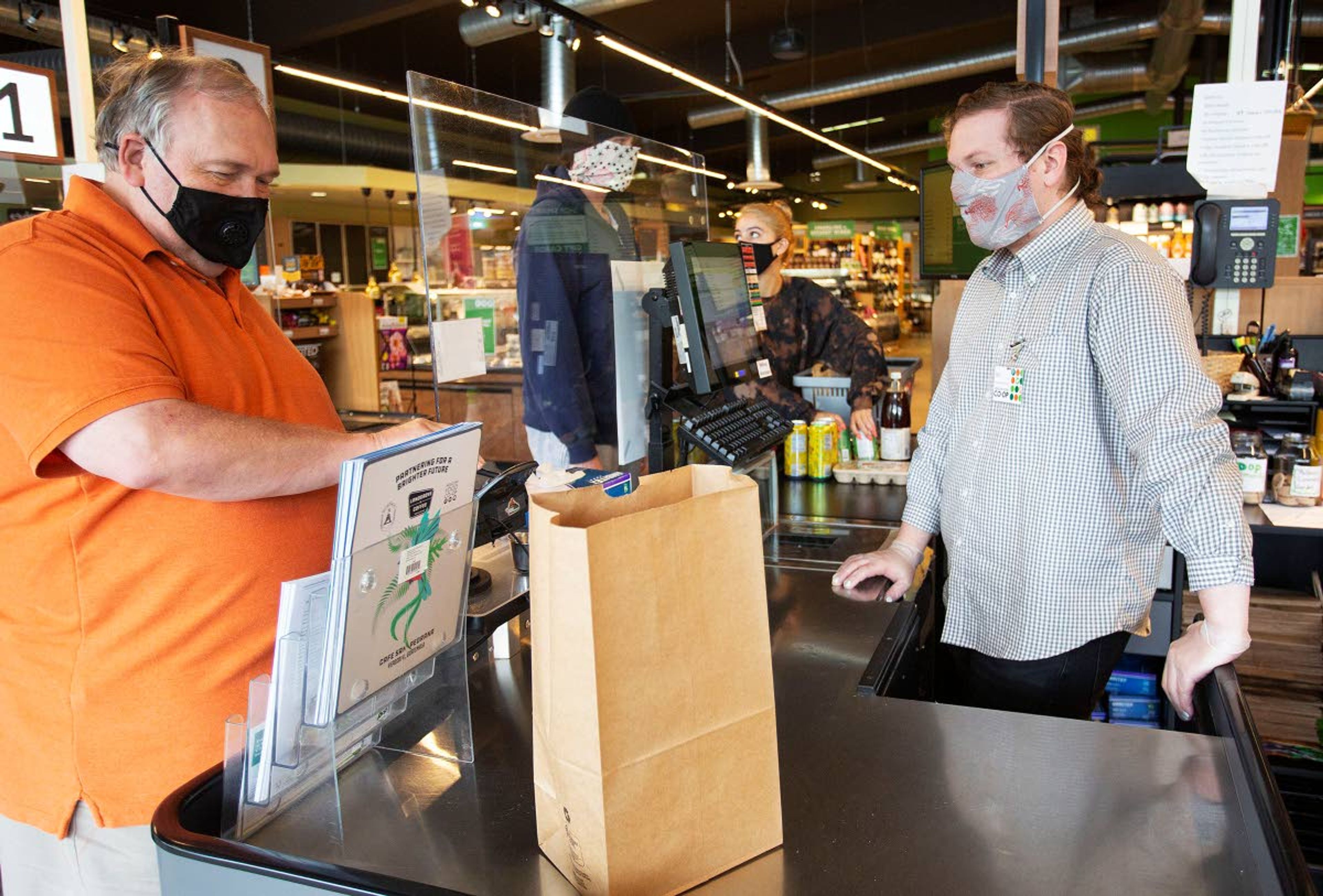Critics weigh in on Moscow’s mask rule
Ten people register their objection to mandatory mask policy; nevertheless, city council extends rule until Aug. 4
Moscow’s recent face mask mandate drew some harsh criticism during Monday’s Moscow City Council meeting, with several speakers describing it as “dehumanizing” and unscientific.
Mayor Bill Lambert issued the mandate last week, based on recommendations from public health officials. It requires people ages 5 and older to wear face coverings in public, if they’re unable to maintain a 6-foot separation from non-family members.
The emergency order includes exceptions for people with certain medical conditions and disabilities, as well as for people who are incarcerated.
Ten people spoke against the order during Monday’s meeting. Several suggested the coronavirus wasn’t as significant a threat as elected officials are portraying — particularly in Latah County, where fewer than two dozen confirmed cases have been reported, with no deaths. Others said mandatory masks created more health problems than they prevented, both by raising anxiety levels and by keeping people from breathing fresh air.
One woman, for example, likened the human immune system to a muscle that atrophies if it isn’t exercised regularly.
“By being exposed to germs and bacteria, we will in fact strengthen ourselves,” she said. “Our greatest defense (against the coronavirus) is our immune system.”
A couple of speakers also criticized council members for allegedly “bullying” or publicly “shaming” businesses that didn’t comply with the mask order to their satisfaction.
Amy Kohl, who served seven years on the Moscow Chamber of Commerce board, described such behavior as “astonishing,” adding that it “won’t yield positive results, and is a poor example of the city reaching out to businesses.”
Lambert defended the mask requirement, saying the best way to help local businesses is to boost public confidence and safety.
Councilor Brandy Sullivan said she’s received hundreds of emails from residents and business owners about the city’s response to the coronavirus, with the vast majority supporting its efforts.
She also noted that none of the council members are public health officials, so they’re relying on recommendations from the experts.
“When all these experts are saying (face masks) is the best thing to do, how can I say I know better?” she asked. “I don’t. I’m not that arrogant to think I know better.”
Following the public comments and a lengthy discussion, the council unanimously extended the mask requirement through Aug. 4.
Only about a dozen people were allowed into the council chambers at one time, to comply with social distancing protocols. They also had to wear face coverings, except when seated. Council members and city staff also wore masks throughout the meeting.
In other action, the council:
Accepted a federal grant for safety improvements along a 1,200-foot section of Public Avenue.
The project involves rebuilding and widening the roadway between Polk and Lincoln streets, in an effort to eliminate injury accidents. Bike lanes will be added as well, and roadside ditches eliminated. About 2,000 feet of curbs, gutters and sidewalks will also be added.
The overall cost to the city is $64,592, which represents a 7.3 percent local match.
Agreed to implement the recommendations of a 2020 water and sewer rate study, in conjunction with the fiscal 2021 budget.
Authorized city staff to submit a nonbinding letter of intent to the state, indicating Moscow’s interest in a $200 million property tax relief plan recently proposed by Gov. Brad Little.
The program allocates up to $200 million in federal coronavirus relief funds to pay for the salaries and benefits for local government public health and public safety employees.
To qualify for the funding, cities and counties must agree to pass the savings along to taxpayers by reducing their fiscal 2021 property tax levies an equivalent amount. They would also have to freeze 2021 property tax collections — meaning they couldn’t take any part of the standard 3 percent increase in property tax revenues or tap any foregone taxes banked in previous years. The only allowable increase in 2021 property tax revenues would be from new construction and annexations.
Moscow City Supervisor Gary Riedner said the city is still seeking clarification and confirmation on a number of details regarding the proposal. More information is expected in the next week or two. Once all the ramifications are known, the council will have final say on whether the city participates in the program.
William L. Spence may be contacted at bspence@lmtribune.com or (208) 791-9168.








